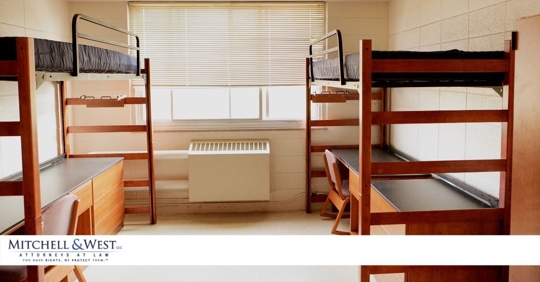School is back in session and after a year of online classes, college students are more eager than ever to be back around their peers. Unfortunately, campus life being back to normal also brings back some of the risks that students face. A major problem at colleges and universities across America is sexual assault.
Defining Sexual Assault
Sexual assault occurs when someone intentionally touches another person in a sexual manner without their consent. It can occur in the form of rape, attempted rape, groping, or domestic violence.
Sexual assault may also involve coercion, where one person coerces the other to engage in sexual behavior against their will.
Important Facts and Statistics
The National Institute of Justice and the Department of Justice have used years of research and data to evaluate the prevalence of sexual assault on college campuses.
Some key takeaways include:
- Alcohol-related assault ranked as the third most commonly reported type of sexual assault.
- Women, underclassmen, and minorities are most likely to be the victims of sexual assault.
- Most victims of sexual assault do not report the incident.
Other research has found:
- Over 25% of undergraduate female students experience sexual assault.
- Male college students are over 70% more likely to be sexually assaulted than non-students of the same age.
- Most campus sexual assaults occur between August and November.
How Sexual Assault Affects Students
Sexual assault is a traumatic experience that has long-lasting effects on victims.
Mental Health
College students who experience sexual assault often struggle with mental health immediately after the attack, and for the following weeks and years.
Many victims report:
- Feeling ashamed or guilty
- Symptoms of depression
- Anxiety
- Difficulty sleeping
- PTSD (flashbacks, nightmares)
These negative feelings and experiences after a sexual assault make it even more difficult to begin healing and can end up interfering with numerous other aspects of the victim’s life.
Grades
After a sexual assault, many victims lose the motivation to participate in things that are important or that they care about. Some experience a sudden drop in grades after the attack. This can lead to trouble if the individual is put on academic probation or fails out of school altogether.
Future Relationships
It’s common for students to date frequently in college. However, after a sexual assault occurs, the victim may struggle to form romantic bonds with others. Intimacy may bring up uncomfortable feelings or flashbacks from the attack.
If you are struggling to form relationships or engage in sex after a sexual assault, speak with your partner about boundaries and what will help you feel comfortable.
Avoiding Sexual Assault
Sexual assault can happen to anyone, at any time, at any place. However, there are certain actions you can take in an effort to decrease your chances of becoming a victim of sexual assault on campus.
- Stay alert: if you are alone in public, make sure you are paying attention to your surroundings. Whenever possible, stay in an area with other people around.
- Protect your drink: unfortunately, date rape drugs are used at college parties. Whenever you are drinking, keep your cup covered in your hand. If you need to leave your drink temporarily, hand it to a friend you trust. If you lose sight of your drink at any point, get a new one.
- Stay with friends: it’s true that there is safety in numbers. If you and your friends are going out for the night, make sure you all stay together.
- Request a protection order: if there is an individual you have strong concerns about, or have been threatened by, consider filing for a protection order. This will ensure that that individual must stay away from you, or they can face criminal consequences.
Your Legal Options After Sexual Assault
Did you know that you can file a personal injury lawsuit after sexual assault? If you have been the victim of sexual assault, you can seek compensation for your suffering. The team at Mitchell & West, LLC is on your side every step of the way. Call (305) 783-3301 to speak confidentially with one of our Miami sexual assault victim attorneys.

